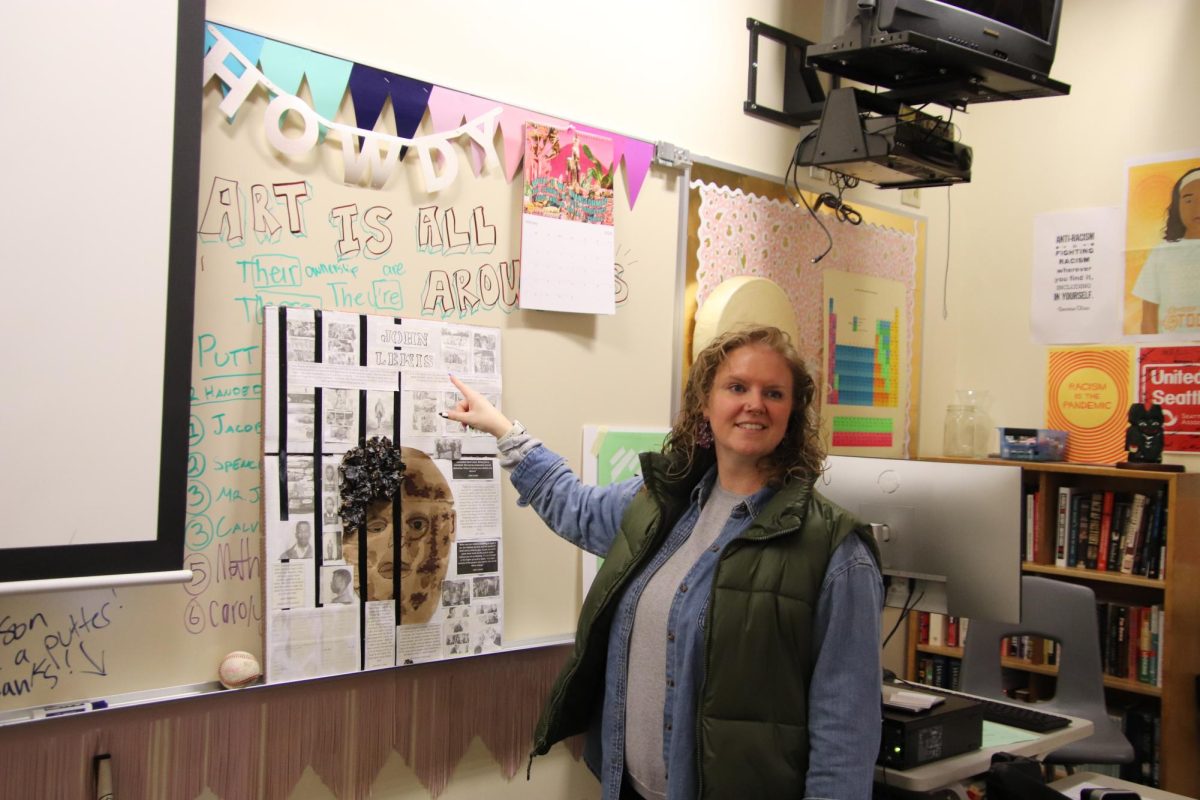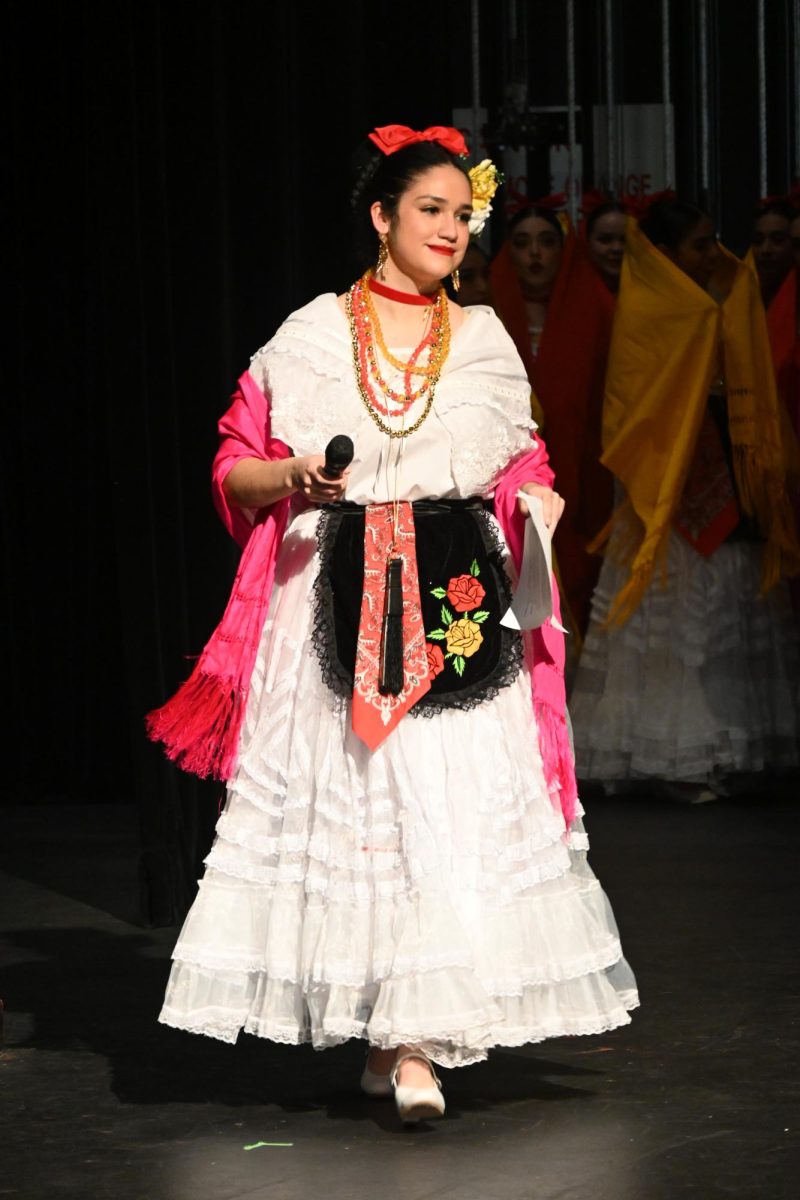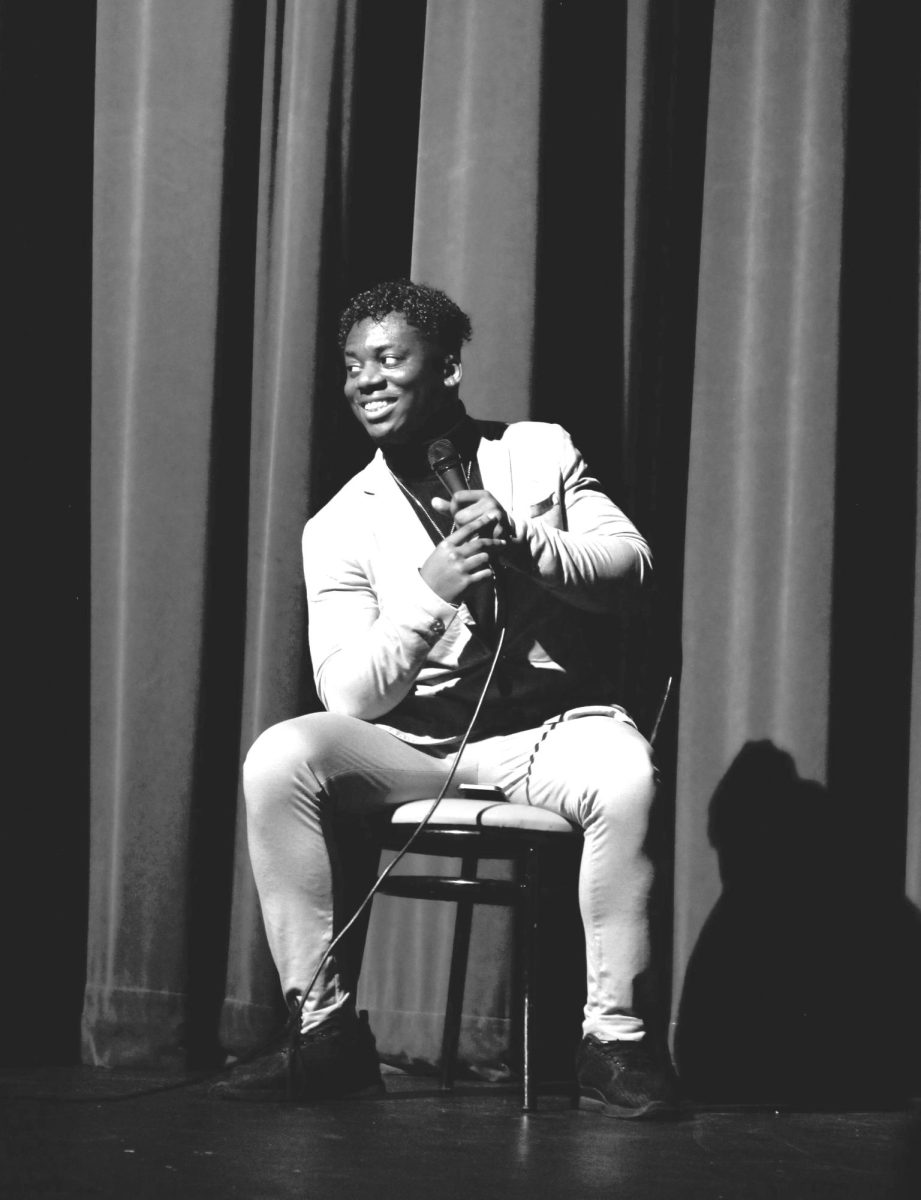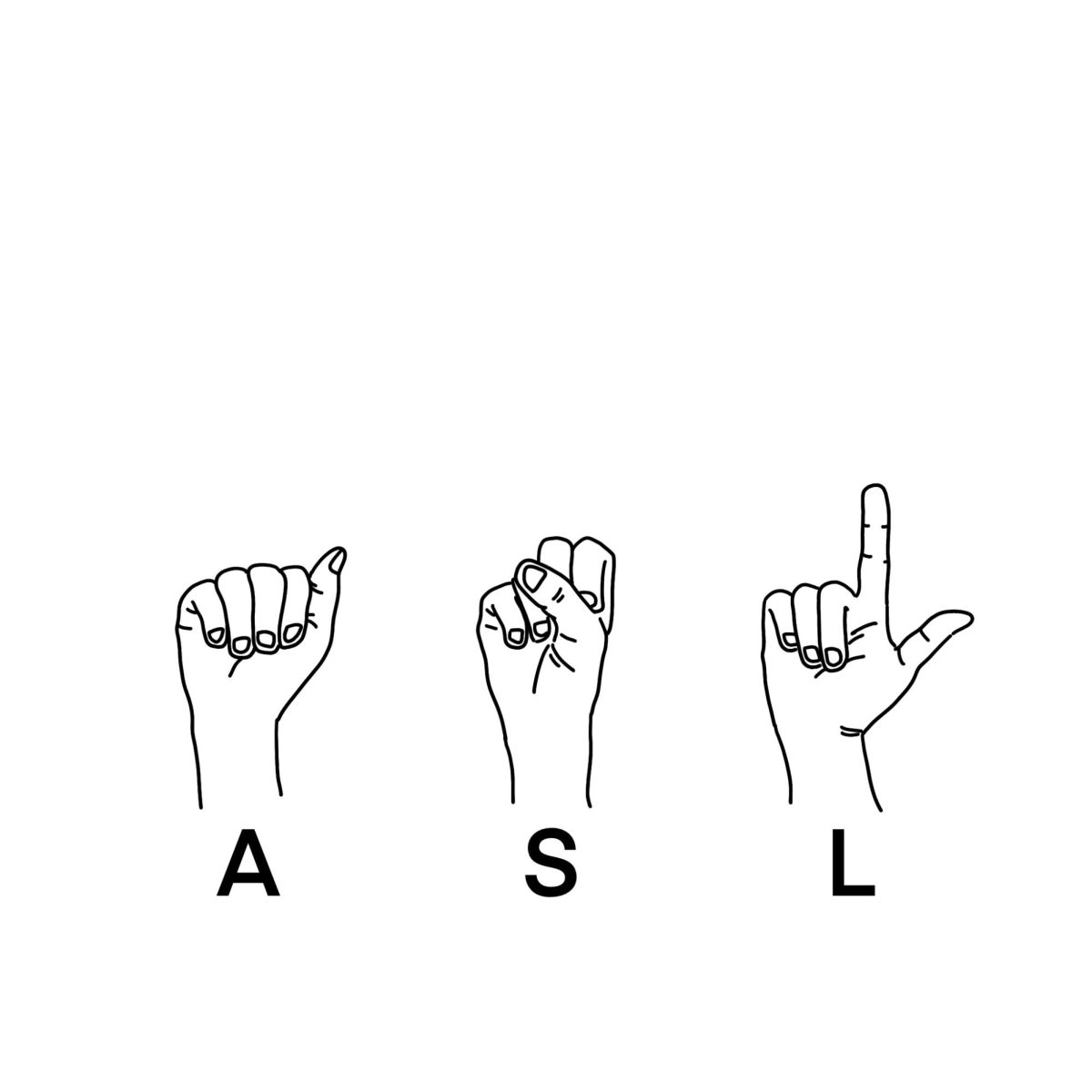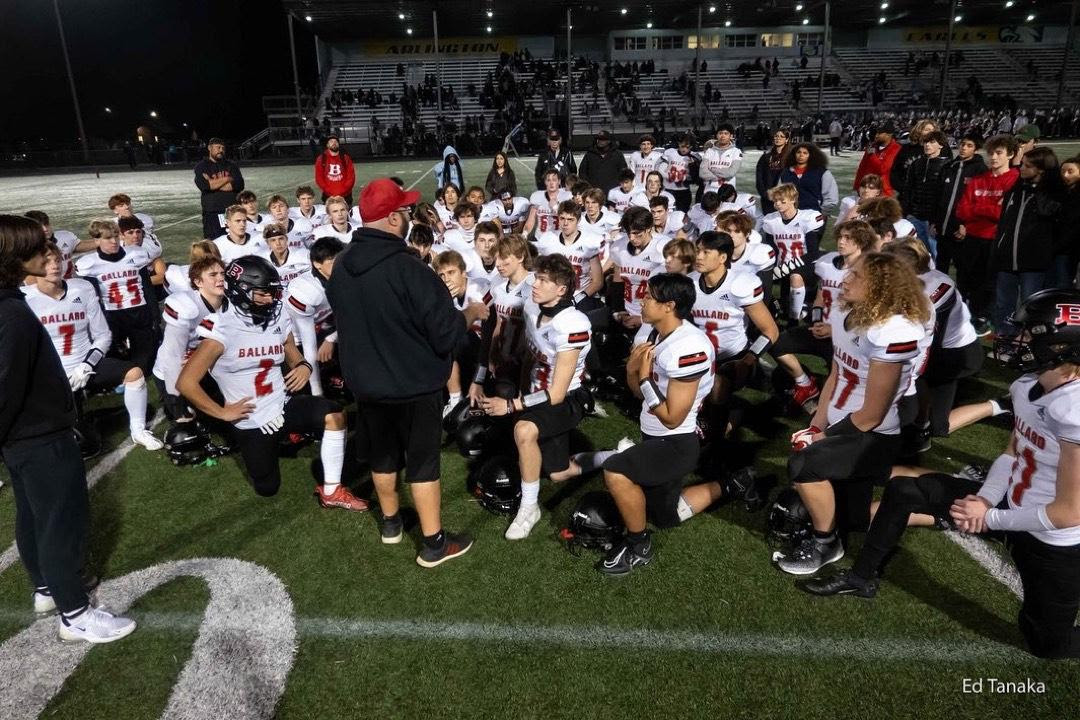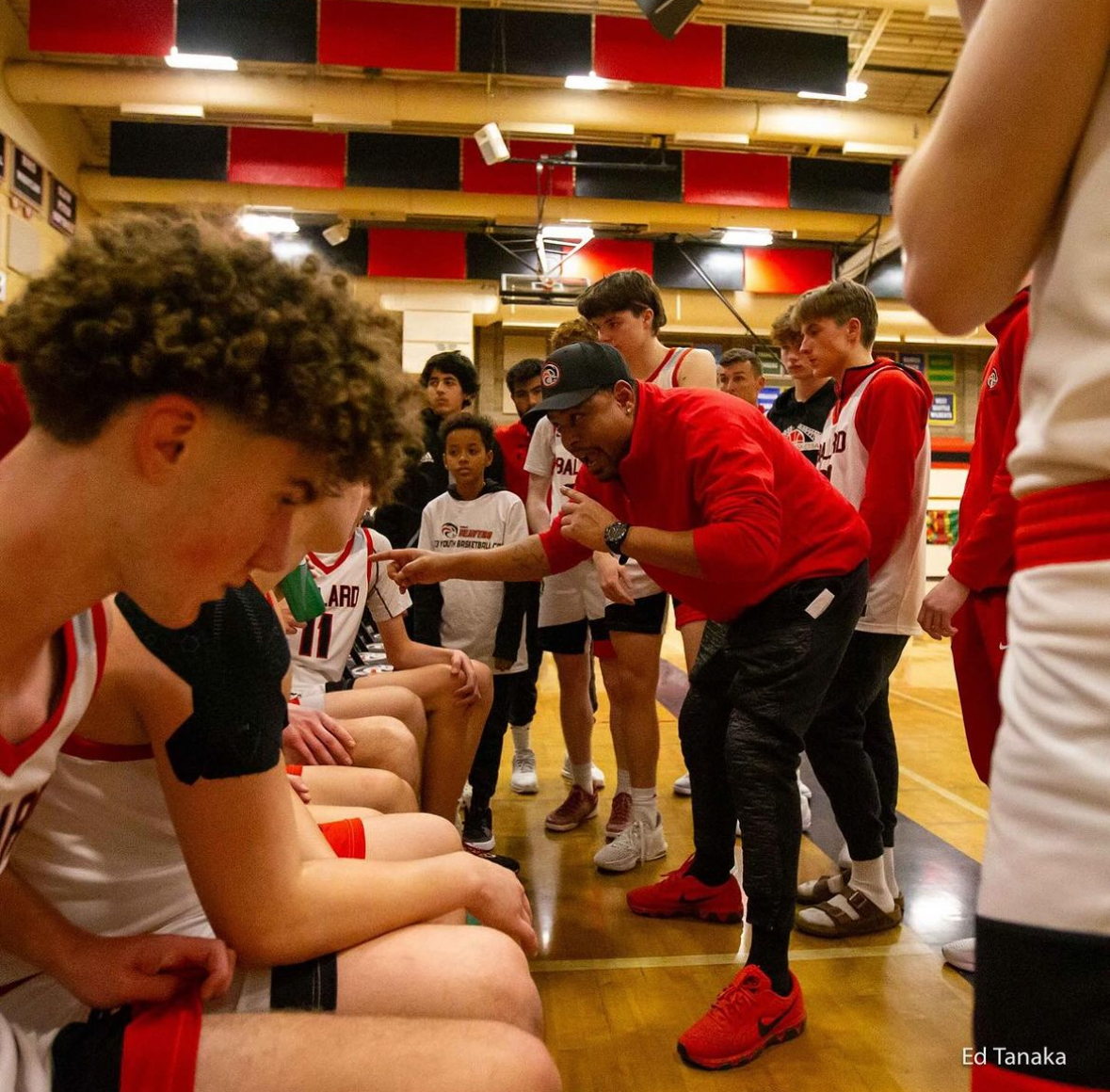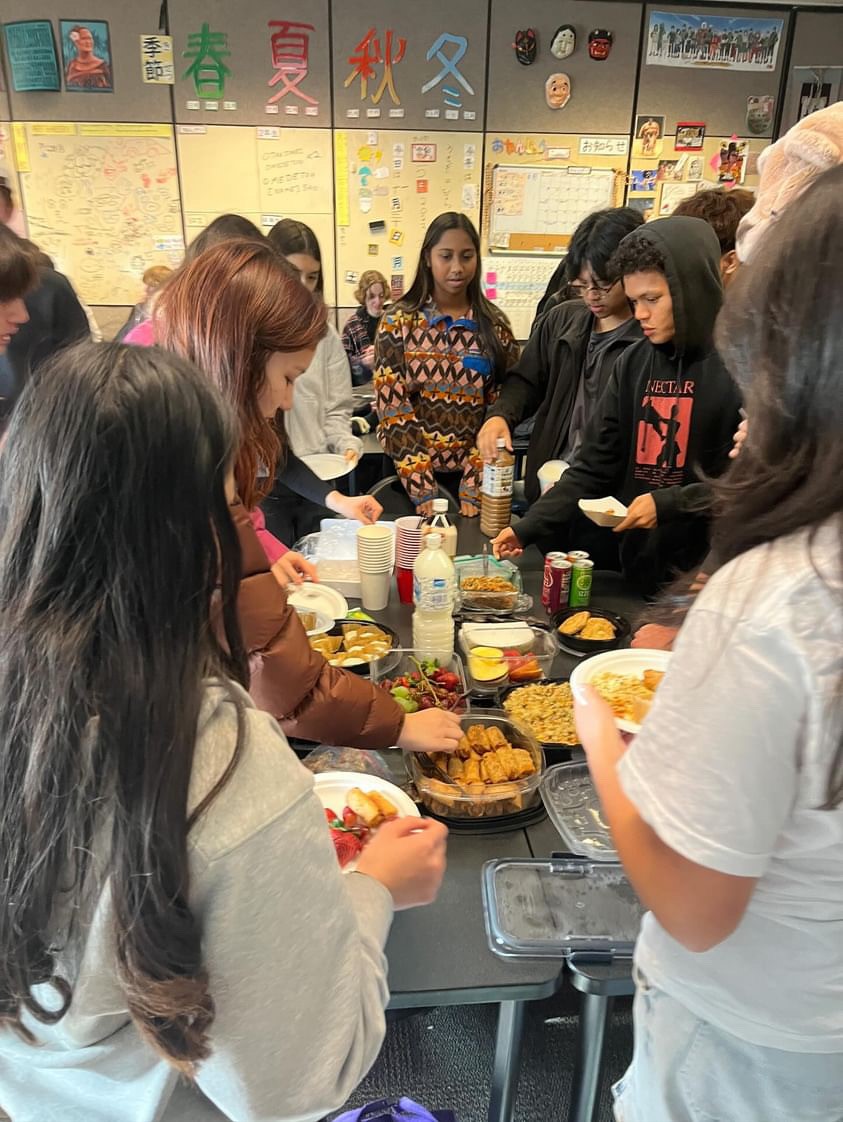Members of the Church of Jesus Christ explain their beliefs and practices
Eileen MacDonald and Kylie Williams, Features Editor and Online editor
ORIGINALLY PUBLISHED May 16, 2019
For public school students, religion is rarely discussed. Students go through high school never learning about the belief systems that steer many communities. For some students, however, religion is an extremely immersive part of their lives, particularly for members of The Church of Jesus Christ of Latter Day Saints (LDS).
According to the Pew Research Center, 3% of the adults in Washington are part of the Church of Jesus Christ. Despite this small percentage overall, the Seattle LDS community is fairly large and reflected in the LDS student community at school.
The LDS faith is centered around a belief in Jesus Christ. Members believe that Christ’s original church in the New Testament has been restored in modern times through the Mormon church and the prophet Joseph Smith. Many of the practices within the church are in pursuit of savior in the afterlife and being reunited with God and family for eternity. Although the church is most often referred to as the Mormon church by non-members, it is not generally the favored term within the religion.
Navigating religious constraints
Because of these beliefs, members of the church face certain restrictions and lifestyle differences in everyday life. Many of these would be difficult to navigate for most teenagers, however, for students such as juniors Emma Brubaker and Ella Kirwan and senior Kiya Smith, it is an everyday reality.
“There’s a lot of things that people ask me about,” Brubaker said. “I don’t drink, I don’t smoke, I don’t drink coffee and I don’t drink caffeinated tea. People and friends are always like ‘how do you survive without coffee?’ I’ve had it on accident a couple times and I don’t even like it anyways so it’s not that big of a deal.”
While some students such as Brubaker and Smith closely adhere to the beliefs and restrictions outlined by the church, others feel that they can find other ways to express their faith. Kirwan has grown up in a Mormon family; however, her beliefs somewhat diverge from the exact teachings of the church. “I am kind of less ‘letter of the law,’ and more spirit of the law. Like my religious views are kind of more loose,” Kirwan said. “If you are a good person that’s a good thing. I don’t necessarily agree with all of the beliefs of the Mormon church, but I identify with religion.”
Central values
Despite this divergence, Kirwan feels that growing up religious has benefited her in her understanding of the world and of her own purpose.
“I think it’s definitely given me a path for my moral ideas of and who I am as a person,” Kirwan said. “I think I would still have strong morals without religion, but growing up in the church is kind of a why for that. Instead of just ‘you are a nice person because that’s what you should be’ it’s like ‘you’re a nice person because God wants you to be.’”
Perhaps one of the most central aspects of the Mormon faith that is instilled in its participants is the importance of family. Although Kirwan may not agree with every teaching of the church, this aspect is one that has shaped her relationship with her family and made them closer.
“I think it makes us really close,” Kirwan said. “Every Monday you are supposed to have family home evening where you hang out with your family and do activities together and I think it helps. We’re pretty close, I mean I think we would be even if we weren’t Mormons but that’s part of it.”
Dedication in everyday life
While many religions require time commitments from practicing members, the LDS church especially, because of its immersive and community-oriented nature, gives many opportunities for individuals, particularly teenagers, to practice during the week. To start, LDS members attend church every Sunday for two hours, and there are additional opportunities to practice such as youth group meetings and morning Bible study classes.
Sundays for some Mormon families are sacred days for worship. “Sundays have never been a day where I’ve ever been allowed to do anything,” Kirwan said. “Like I used to not be allowed to be on my phone at all, my brother can’t play video games. Nothing like that is allowed on Sundays.”
Some particularly devout members such as Smith, find as many opportunities as possible to practice throughout the day.
“I practice my religion within my family every day. We say a prayer before we eat dinner and I normally will read the Book of Mormon at night with my family or on my own,” Smith said.
LDS members are so drawn to their practices and willing to sacrifice their time because of the stability they feel from having a close relationship with God. “I definitely would have a harder time with my parents’ divorce and other issues in life, but since I know that God cares and that there’s a life after death and I know my purpose and why we’re here that really helps me go through life and not worry as much,” Brubaker said.
Misconceptions and assumptions
People of the LDS faith often face stigma that surrounds their religion from those who do not have such strong religious beliefs and unique practices. There are stereotypes, such as polygamy, that are not in accordance with most LDS practices today, yet they’re the things that people think of.
“Some other stereotypes that are not true that still spark a lot of controversy are that we practice polygamy, we are racist, and we hate those that identify LGBTQ. All these things are absolutely not true,” Smith said. “Most people read and get these ideas from sources that try to attack our faith and don’t have correct information.”
LDS teens find different ways to navigate the reactions of those around them to their somewhat conservative and demanding religion. Kirwan likes to find ways to make religion a more comfortable discussion topic for the people in her life.
“I think the fact that I joke about it too kind of makes people less judgy about it,” Kirwan said. “I like to poke fun at it a lot. Like that whole polygamy thing, I like to make jokes about that a lot and talk about my future five wives or whatever because I think that’s kind of funny.”
Despite occasional stereotyping from their peers, most teenage members of the LDS faith remain committed to the rules and requirements because of their belief in the Mormon mission and message.
“Overall, my religion makes me feel happy and to me is my main source of long-lasting joy. There have been many times where I have felt judged for my religion and people have tried to criticize it which can be a really hard experience and every religion or belief system faces this,” Smith said. “I’m not perfect and neither is my family, my siblings and I argue and fight just like anyone else, but we are constantly trying to get better.”
